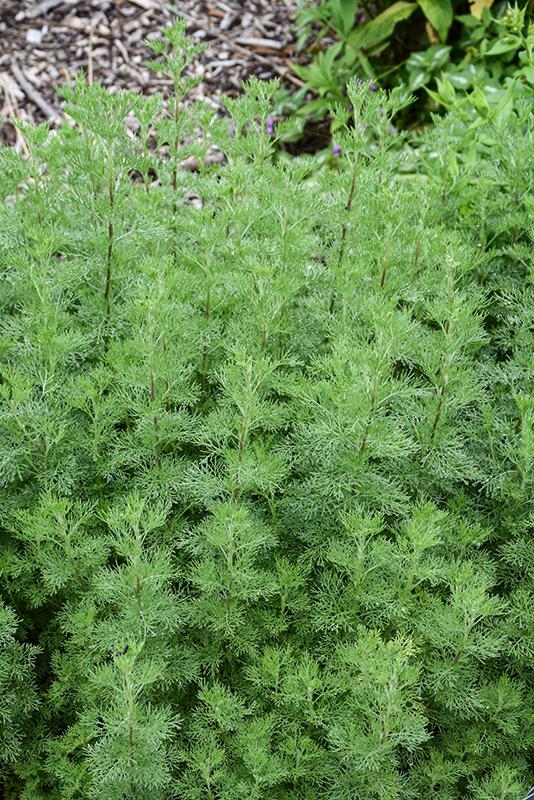>> Home
Height: 3 feet
Spacing: 24 inches
Sunlight:
![]()
![]()
![]()
Hardiness Zone: 4a
Other Names: Southern Wormwood, European Sage, Mugwort
Brand: Plant Select
Description:
Fragrant silvery, gray-green foliage is the focus of this selection; a compact-upright habit, excellent to mass as a low garden hedge; shade and drought tolerant; cut back in winter to early spring to keep compact and shapely
Ornamental Features
Leprechaun Southernwood's attractive small deeply cut ferny leaves remain grayish green in colour with hints of silver throughout the season on a plant with an upright spreading habit of growth.
Landscape Attributes
Leprechaun Southernwood is a dense herbaceous perennial with an upright spreading habit of growth. It brings an extremely fine and delicate texture to the garden composition and should be used to full effect.
This is a high maintenance plant that will require regular care and upkeep, and should be cut back in late fall in preparation for winter. It is a good choice for attracting butterflies to your yard, but is not particularly attractive to deer who tend to leave it alone in favor of tastier treats. Gardeners should be aware of the following characteristic(s) that may warrant special consideration;
- Spreading
Leprechaun Southernwood is recommended for the following landscape applications;
- Mass Planting
- Hedges/Screening
- Rock/Alpine Gardens
- General Garden Use
- Naturalizing And Woodland Gardens
- Container Planting
Planting & Growing
Leprechaun Southernwood will grow to be about 3 feet tall at maturity, with a spread of 30 inches. When grown in masses or used as a bedding plant, individual plants should be spaced approximately 24 inches apart. Its foliage tends to remain dense right to the ground, not requiring facer plants in front. It grows at a medium rate, and under ideal conditions can be expected to live for approximately 10 years. As an herbaceous perennial, this plant will usually die back to the crown each winter, and will regrow from the base each spring. Be careful not to disturb the crown in late winter when it may not be readily seen!
This plant performs well in both full sun and full shade. It prefers dry to average moisture levels with very well-drained soil, and will often die in standing water. It is considered to be drought-tolerant, and thus makes an ideal choice for a low-water garden or xeriscape application. This plant should not require much in the way of fertilizing once established, although it may appreciate a shot of general-purpose fertilizer from time to time early in the growing season. It is not particular as to soil pH, but grows best in sandy soils. It is highly tolerant of urban pollution and will even thrive in inner city environments. This is a selected variety of a species not originally from North America. It can be propagated by division; however, as a cultivated variety, be aware that it may be subject to certain restrictions or prohibitions on propagation.
Leprechaun Southernwood is a fine choice for the garden, but it is also a good selection for planting in outdoor pots and containers. With its upright habit of growth, it is best suited for use as a 'thriller' in the 'spiller-thriller-filler' container combination; plant it near the center of the pot, surrounded by smaller plants and those that spill over the edges. It is even sizeable enough that it can be grown alone in a suitable container. Note that when growing plants in outdoor containers and baskets, they may require more frequent waterings than they would in the yard or garden. Be aware that in our climate, most plants cannot be expected to survive the winter if left in containers outdoors, and this plant is no exception. Contact our experts for more information on how to protect it over the winter months.
